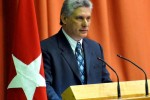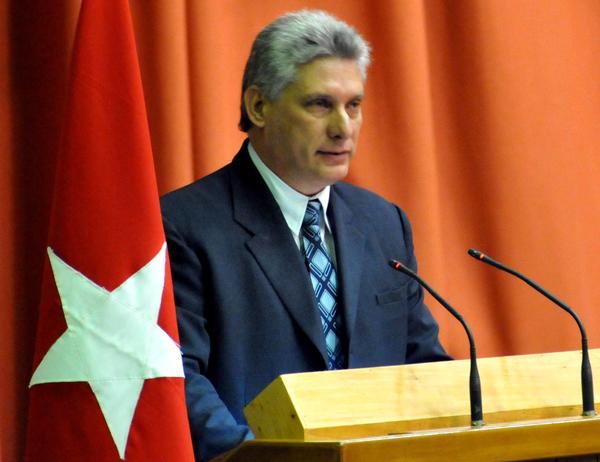 Cuban Vice President Miguel Diaz-Canel considered that the Pedagogy conferences increasingly become forums for debate between honest and committed people who assume the challenge of developing quality education for all.
Cuban Vice President Miguel Diaz-Canel considered that the Pedagogy conferences increasingly become forums for debate between honest and committed people who assume the challenge of developing quality education for all.
Delegates that attended the International Conference Pedagogy 2013 will return to their countries with the commitment of keeping active networks for scientific exchange until the next congress is held in 2015.
This was agreed in the final declaration passed yesterday in the closing of the forum.
They also agreed to step up efforts to wipe out illiteracy, to improve teachers’ training, widen the education coverage at all levels and promote the use of technologies to improve the teaching-learning process.
They clearly expressed in the document their conviction that there cannot be freedom or development without quality education with and culture for all.
So, they supported improving the teaching systems and spread history and traditions of the Latin American peoples.
Likewise, they ratified their proposal for the Latin American and Caribbean unity and integration as a way to promote and consolidate development.
In his address to the delegates, Cuban Vice President Miguel Diaz-Canel considered that the Pedagogy conferences increasingly become forums for debate between honest and committed people who assume the challenge of developing quality education for all.
He also highlighted the participation of more than 4,100 delegates from 44 countries, who talked about the challenges and ways to give solutions to problems related to education and also health, sport, culture, science, technology and environment.
General Secretary of the Organization of Ibero-American States for Education, Science and Culture (OEI), Alvaro Marchesi, highlighted the significance of early childhood education (from birth to age six).
Another speaker at the conference was the deputy director general of UNESCO, Qian Tang, who addressed the topic of preparing young people for their entry into working life.
 Escambray ENGLISH EDITION
Escambray ENGLISH EDITION





Escambray reserves the right to publish comments.